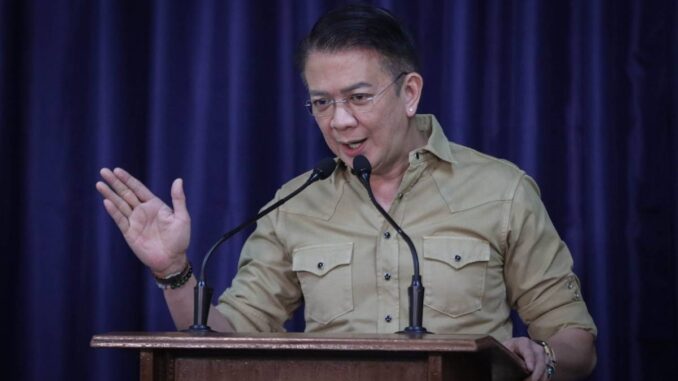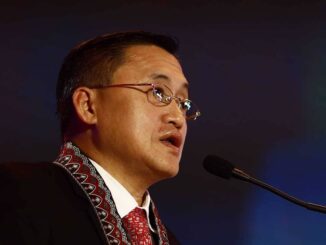
SENATE President Francis Escudero said on Friday, October 25, that the upper chamber would ensure that the budget for flood-control projects will be spent on measures to mitigate flooding.
“We begin budget deliberations when we resume on November 4. I expect this will be brought up during the discussions on the allocations for the Department of Public Works and Highways (DPWH), Department of Environment and Natural Resources (DENR), Department of the Interior and Local Government (DILG), Department of Social Welfare and Development (DSWD), and the Department of National Defense/Office of Civil Defense (DND/OCD),” said Escudero in a text message.
Under the proposal submitted by the Department of Budget and Management (DBM), more than a quarter of a trillion pesos will be allocated for flood control in the 2025 budget.
Based on the National Expenditure Program (NEP), the water resources development and flood control subsector has been allocated P257.06 billion. This funding is primarily attributed to the DPWH Flood Management Program, which receives P254.29 billion. The program aims to construct and maintain flood mitigation structures and drainage systems.
DPWH Secretary Manuel Bonoan has reaffirmed the agency’s commitment to providing long-term solutions for the persistent flooding many Filipinos face.
Bonoan shared that the DPWH has created master plans for each of the 18 major river basins in the Philippines. These plans address the increasing frequency and intensity of rainfall linked to climate change.
Each master plan is area-specific to ensure more efficient and targeted management of flood risks.
“While there is no single nationwide master plan for flood control, our decentralized strategy allows us to customize solutions for each major river basin, considering their unique geographical, hydrological, and environmental conditions,” said the DPWH head.
On Thursday, October 24, the House of Representatives transmitted to the Senate House Bill 10800, or the General Appropriations Bill (GAB), containing the proposed P6.352-trillion national budget for 2025.
The House of Representatives approved the proposed P6.352-trillion national budget for 2025 on the third and final reading on September 25.
The proposed budget amounts to 22 percent of the country’s GDP, a 10.1 percent increase from this year’s P5.768 trillion budget.
Escudero stated that the GAB transmitted to the Senate allows them to begin deliberating the proposed national budget for next year.
“Right now, the Senate committee hearings are on schedule, and we expect it to be approved with enough time for the President to read and review the line items he can make in the proposed budget to be complete. This law is before the end of the year,” Escudero said in Filipino.
He said they are considering sponsoring their version of the budget bill on November 5 or 6.
“Maybe we can start the interpellations on the general principles on November 5 or 6, and the plenary debates will continue the following week,” he previously said.
Escudero expects the Senate version of the proposed budget will be approved in two weeks after its sponsorship.
He also expects the bicameral conference committee deliberations to run for two weeks.
“Before we adjourn, [the budget bill] must be sent to Malacañang. So, we expect it to be approved in the second week of December, at the latest, or at the earliest first week of December,” he said.
As stated in the NEP, a budget of P861.24 billion is proposed for communications, roads, and other transport subsectors — or mainly for infrastructure projects.
Meanwhile, debt payments (i.e., interest payments and net lending) are at P876.73 billion, or 13.8 percent of the 2025 proposed spending program.
For interest payments alone, P848.03 billion will be allocated for creditors, reflecting a P177.56 billion increase from the 2024 level.
According to the Bureau of Treasury, the Philippines’ sovereign debt hit P15.35 trillion in May.
It also reported that, compared to April, approximately P1.4 billion was added to the country’s total debt in May, as the Philippine peso weakened against the US dollar.
In the 2025 budget, debt payments surpass the funds set aside for national defense, which is P419.3 billion. However, this defense budget still represents a 50.75 percent increase compared to last year’s allocation as the country seeks to enhance its defense capabilities.





Be the first to comment